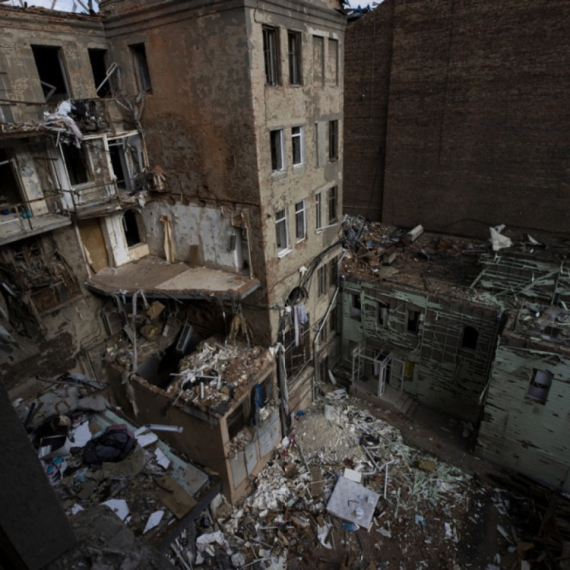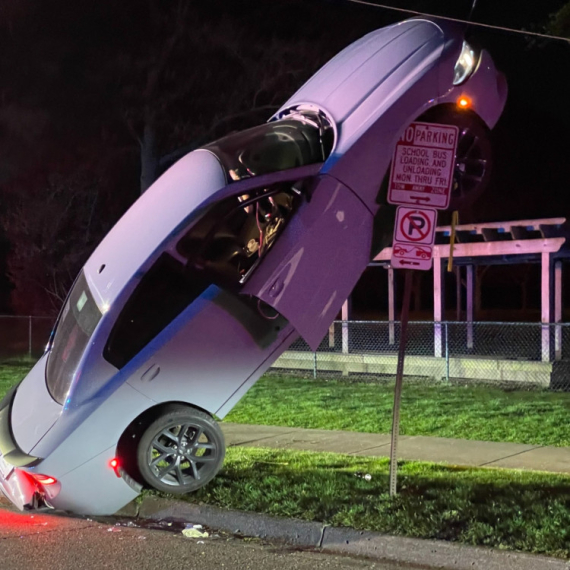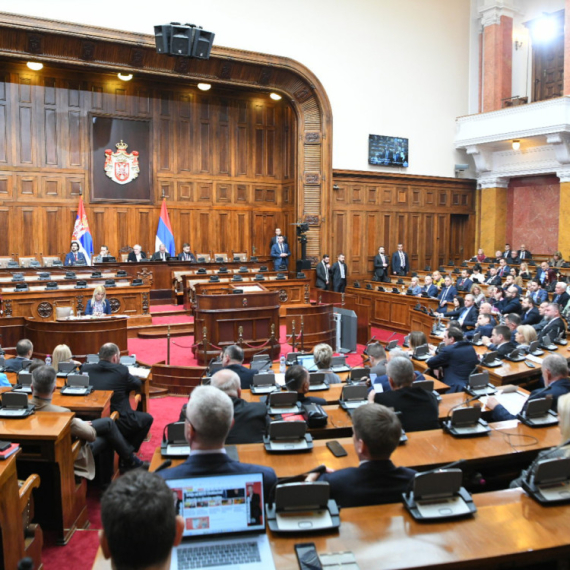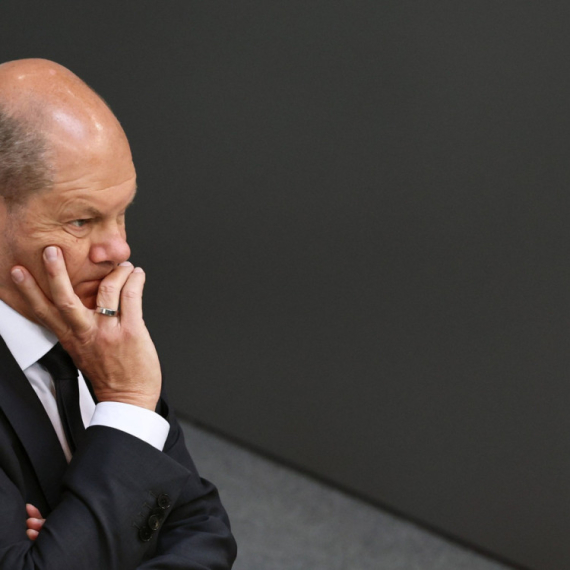Key U.S. mortgage lender goes bust
One of the largest U.S. mortgage lenders, the California-based IndyMac Bank, has collapsed amid a growing credit crisis.
Saturday, 12.07.2008.
11:01

One of the largest U.S. mortgage lenders, the California-based IndyMac Bank, has collapsed amid a growing credit crisis. Federal regulators seized the bank's assets, fearing it might not be able to meet withdrawals by depositors. Key U.S. mortgage lender goes bust It is the second-largest financial institution to fail in U.S. history, regulators say. The failure came on a day when shares in the two biggest U.S. home loan institutions - Freddie Mac and Fannie Mae - fell at one stage by almost 50 percent. IndyMac had been struggling to raise funds and stay in business in one of the states worst hit by the U.S. housing market slump. The bank's primary regulator, the Office of Thrift Supervision (OTS), said depositors had withdrawn more than USD 1.3bn in the past 11 days. "This institution failed today due to a liquidity crisis," OTS Director John Reich said. The OTS believed IndyMac was unlikely to meet its depositors' demands and transferred its operations to the Federal Deposit Insurance Corporation (FDIC), which will seek a buyer. IndyMac customer Steve Knieerein told ABC television: "I'm very angry, very upset about this. I wanted to withdraw my money." People with deposits of up to USD 100,000 each are covered by insurers. But about 10,000 people had uninsured funds over that limit with IndyMac - worth a total USD 1bn at the time of closing. The FDIC said it would pay those people an advance dividend equal to half of their uninsured deposit. It is the fifth U.S. financial institution this year to succumb amid a credit crunch, falling house prices and rising foreclosures. The move came after rollercoaster trading on Friday for Freddie Mac and Fannie Mae - which are behind half of all U.S. mortgages. They play an important role in the financial markets in providing funding for home loans by buying up mortgages and packaging them as investments. "Important mission" As mortgage backers, the companies have had to pay out when homeowners have defaulted on their loans. Both firms defended their finances, saying they had enough capital to weather the housing slump. Shares in the two firms recovered after U.S. Treasury Secretary Henry Paulson signaled he was not on the verge of taking Fannie Mae and Freddie Mac into public hands. "Our primary focus is supporting Fannie Mae and Freddie Mac in their current form as they carry out their important mission," he said. President George W Bush was briefed on Fannie Mae and Freddie Mac earlier on Friday. Bush said Paulson assured him he and Federal Reserve Chairman Ben Bernanke "will be working this issue very hard". After a volatile trading session, Freddie Mac shares closed down 3.1 percent at USD 7.75. Shares of Fannie Mae ended the day down 22.4 percent at USD 10.25 after sliding as much as 49 percent to a 19-year low of USD 6.68. U.S. Senator Christopher Dodd said the Federal Reserve was considering allowing Fannie Mae and Freddie Mac to borrow directly from the central bank, which also helped the shares to recover. Some media reported the Treasury was planning some kind of government-led rescue but Paulson said only that they were "maintaining a dialogue with regulators and with the companies".
Key U.S. mortgage lender goes bust
It is the second-largest financial institution to fail in U.S. history, regulators say.The failure came on a day when shares in the two biggest U.S. home loan institutions - Freddie Mac and Fannie Mae - fell at one stage by almost 50 percent.
IndyMac had been struggling to raise funds and stay in business in one of the states worst hit by the U.S. housing market slump.
The bank's primary regulator, the Office of Thrift Supervision (OTS), said depositors had withdrawn more than USD 1.3bn in the past 11 days.
"This institution failed today due to a liquidity crisis," OTS Director John Reich said.
The OTS believed IndyMac was unlikely to meet its depositors' demands and transferred its operations to the Federal Deposit Insurance Corporation (FDIC), which will seek a buyer.
IndyMac customer Steve Knieerein told ABC television: "I'm very angry, very upset about this. I wanted to withdraw my money."
People with deposits of up to USD 100,000 each are covered by insurers.
But about 10,000 people had uninsured funds over that limit with IndyMac - worth a total USD 1bn at the time of closing.
The FDIC said it would pay those people an advance dividend equal to half of their uninsured deposit.
It is the fifth U.S. financial institution this year to succumb amid a credit crunch, falling house prices and rising foreclosures.
The move came after rollercoaster trading on Friday for Freddie Mac and Fannie Mae - which are behind half of all U.S. mortgages.
They play an important role in the financial markets in providing funding for home loans by buying up mortgages and packaging them as investments.
"Important mission"
As mortgage backers, the companies have had to pay out when homeowners have defaulted on their loans.Both firms defended their finances, saying they had enough capital to weather the housing slump.
Shares in the two firms recovered after U.S. Treasury Secretary Henry Paulson signaled he was not on the verge of taking Fannie Mae and Freddie Mac into public hands.
"Our primary focus is supporting Fannie Mae and Freddie Mac in their current form as they carry out their important mission," he said.
President George W Bush was briefed on Fannie Mae and Freddie Mac earlier on Friday.
Bush said Paulson assured him he and Federal Reserve Chairman Ben Bernanke "will be working this issue very hard".
After a volatile trading session, Freddie Mac shares closed down 3.1 percent at USD 7.75.
Shares of Fannie Mae ended the day down 22.4 percent at USD 10.25 after sliding as much as 49 percent to a 19-year low of USD 6.68.
U.S. Senator Christopher Dodd said the Federal Reserve was considering allowing Fannie Mae and Freddie Mac to borrow directly from the central bank, which also helped the shares to recover.
Some media reported the Treasury was planning some kind of government-led rescue but Paulson said only that they were "maintaining a dialogue with regulators and with the companies".

















































Komentari 7
Pogledaj komentare